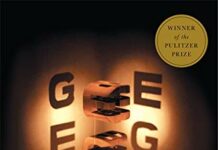
Ebook Info
- Published: 2001
- Number of pages: 512 pages
- Format: PDF
- File Size: 4.83 MB
- Authors: Douglas R Hofstadter
Description
With contributions from Jorge Luis Borges, Richard Dawkins, John Searle, and Robert Nozick, The Mind’s I explores the meaning of self and consciousness through the perspectives of literature, artificial intelligence, psychology, and other disciplines. In selections that range from fiction to scientific speculations about thinking machines, artificial intelligence, and the nature of the brain, Hofstadter and Dennett present a variety of conflicting visions of the self and the soul as explored through the writings of some of the twentieth century’s most renowned thinkers.
User’s Reviews
Editorial Reviews: Amazon.com Review Ever wondered who you are? Who you really are? This collection of writings and reflections by some of today’s most notable thinkers is designed to enliven this most central, and most baffling, question in the philosophy of mind. In some ways, the questions posed and bantered about in this book are at the heart of all philosophical reasoning. They are the ultimate questions about the self. The Mind’s I contains an astonishing variety of approaches to answering the question, “Who am I?” Between the covers of this book one encounters the literary erudition of Argentinean writer Jorge Luis Borges alongside the analytic rigor of John Searle. There are sophisticated metaphorical pieces (such as “The Princess Ineffabelle” by Polish philosopher and writer Stanislaw Lem), intriguing dialogues (like Raymond Smullyan’s “Is God a Taoist?”), and serious but engaging philosophical essays from a host of thinkers (see Thomas Nagel’s “What Is It Like to Be a Bat?”). Editors Hofstadter and Dennett–leading lights in the study of cognitive science, artificial intelligence, and the philosophy of mind–follow each selection with a short reflection designed to elaborate on their main themes. The Mind’s I admirably broadens their fields to a more general audience. The book’s essays are grouped into six categories, each successively raising the philosophical stakes by introducing new levels of complexity. Ultimately, one confronts some of the thorniest questions in modern philosophy here, such as the nature of free will, our place in the metaphysical world, and the possibility of genuine artificial intelligence. The book closes with a playful and perplexing piece by Robert Nozick, an adequate summation to The Mind’s I. He writes, “Perhaps God has not decided yet whether he has created, in this world, a fictional world or a real one…. Which decision do you hope for?” –Eric de Place About the Author Douglas Hofstadter is College of Arts and Sciences Professor of Cognitive Science and Computer Science at Indiana University, Bloomington. His other books include the Pulitzer Prize-winning Gödel, Escher, Bach: an Eternal Golden Braid; Metamagical Themas; The Mind’s I; Fluid Concepts and Creative Analogies; Le Ton beau de Marot; and Surfaces and Essences, with Emmanuel Sander. He lives in Bloomington, Indiana.Daniel C. Dennett is Distinguished Arts and Sciences Professor, Professor of Philosophy, and Director of the Center for Cognitive Studies at Tufts University.
Reviews from Amazon users which were colected at the time this book was published on the website:
⭐The book is an anthology of material excerpted from elsewhere — each essay followed by “reflections” by Dennet and/or Hofstadter. There is plenty of variety, so I guarantee you will find some essays utterly delightful and entertaining — wether or not you fancy yourself as one who would normally pursue philsophy of mind or epistemology. The “Princess Ineffabelle” is delightful in its poetry — even for me, a lover of highly analytical discourse. “Is God a Taoist?” is a wonderful example of the socratic dialog — but entertaining and insightful both as well (and also, as the “reflections” claim, even pious). “The Epistemological Nightmare” is just so many things — including outright funny. Insights abound here too though — especially in the “reflections”. You think you are “the final aribiter” of what it is like to be you. You know what tastes good to you, etc. The editors show how this is not so unquestionably true. The very fact that we allow “evidence” to support our critiques means that, e.g. taste-testing failures of yours would have to discredit you. If you dis-allow that possibility from the start, you didn’t have a test or evidence in the first place. I gave a bit of detail on “The Epistemological Nightmare”, I know — but this gives you a taste for how you will be simultaneously entertained (even to outright laughing), given insights, and prompted to think in ways you never would have thought of. There’s plenty of variety to pick from in the book. Go anywhere, any time.
⭐I have read this book in hardcover and think it to be one of the great books of the 20th century. I wanted a portable version so I bought the digital edition and am frustrated by the poor proofreading and typesetting. There are numerous typos and formatting errors right in the first 1% of the book. There are words missing, letters missing, and paragraph breaks that occur in mid-sentence.The sad thing is that on a work of this nature these errors really interrupt the reader’s appreciation of the authors’ point, greatly changing the reading experience.I have the version downloaded on 22 October 2022. Hold out for a later revision and then enjoy Dr. Hofstadter’s wisdom.
⭐This book by D&D is a wonderful, elegant, and fun way to introduce philosophical ideas about the mind. Especially in regards to people that have no familiarity, and even no interest! Because of the strong Hofstadter feel to this book (I don’t think Dennett put much into this) anyone can pick it up and begin opening their “Mind’s I” to the exhilaratingly beautiful philosophy of mind. So, if you for some reason you aren’t interested in philosophy (IMPOSSIBLE!), but still enjoy thought-provoking fiction, Lewis Carroll type wit, and self-reflection, you’ll still be able to appreciate this book.I particularly enjoyed `A Conversation with Einstein’s Brain’ which was written by Hofstadter. In it, the reader is presented more implicit concepts about the mind than they will be able to recognize, with or without prior familiarity with the topics. It’s truly a classic piece of art. Moreover, if you’re not going to read the whole thing, or don’t like a few essays in a row, don’t put it down too quickly! If you hate it that much, skip to the second to last essay (mentioned above) and pry open your minds eye.
⭐I read The Mind’s I over approximately a three week period. For the majority of that time, my wandering thoughts were captivated by musings and thought experiments about cognition and the mind. Whether you’re already deeply interested in cognitive philosophy, or if you just want to have something interesting to think/talk about, you should read this book.That being said, If you’re looking for a deeply technical discussion or a book on neurology, then this is not the book for you. Here you will find very little concrete fact. However the lack of technical detail and care does not take away from the intended goal of this book (just like basically all of Hofstadter’s other works).
⭐Collection of fiction, non-fiction & commentary aimed at freeing your mind from preconceptions about what a mind is. Includes Turing’s classic 1950 paper proposing the “Turing Test” for whether a machine can think. If you think the human soul can’t be an emergent property of the human brain, read this and open yourself to a new version of wonder & mystery.Turing says that by 2000, computers would have Gigabyte memory, & thinking machines could become possible. Current estimates say maybe a petabyte is more realistic. The authors note that eventually, long after 1981, computers might beat the best human chess players. Nobody considers the possibility of a world wide web of interconnected computers, or Siri conversing with you from an iPhone 5.
⭐Ask yourself ‘Who am I ?’ OR rather What is ‘I’ ?Can a machine truly say ‘Cogito ergo sum’ and mean it ?Ah..dwell on that.This book,not really a book,is a compilation of articles written by various authors who are on the leading edge of thought on A.I. and consciousness.I was disillusioned by Hofstadter’s ‘Godel, Escher & Bach’ ( see my review for that book ). I did like Dennett’s ‘Consciousnesses Explained’.Therefore I picked this up to see what the two together have produced for an explanation of what is consciousnesses and if we can truly have a thinking ( conscious ) machine.The subject is still at the frontiers of science so this is probably as good as it gets for now…
⭐I first bought this book at least twenty years ago and it had a profound affect on how I thought about life, the universe and everything. I recommend it without reservation to anyone who wants to try looking at things another way (or another couple of ways or three)
⭐I read this when it was first issued and bought this one for a younger relative who seemed interested in what ‘I’ is. It was very well recived.
⭐I recommend grabbing “I am a strange loop” also, they go very well together. I love this sort of thing, so I am biased towards a five star review…
⭐Having read it originally more than twenty years ago but leaving it behind during my move to Australia, I am SO happy to have found it still available on print, although I would’ve loved to get it on kindle, instead.I consider this book, if not triggered, certainly cemented my interest in the concepts of “self” and “consciousness” in a way that has enlightened my career ever since.It is quite interesting and entertaining the way both co-editors select and discuss each of the selections, but not always agreeing on why nor their perspectives on the main topics. Reminds me a lot of Plato’s Dialogues, with the twist of all the parties in this book being real humans (or not?)Definitely recommended, even if you don’t agree with other works of the editors.
⭐Obwohl schon ziemlich betagt: The Mind’s I ist ein herrliches Lesebuch und immer noch ein Genuss für den, der es phantastisch mag und vor Paradoxien nicht zurückschreckt. (Hofstadters Achilles-Schildkröte-Dialoge hätten nicht sein müssen.)
⭐
Keywords
Free Download The Mind’s I: Fantasies And Reflections On Self & Soul in PDF format
The Mind’s I: Fantasies And Reflections On Self & Soul PDF Free Download
Download The Mind’s I: Fantasies And Reflections On Self & Soul 2001 PDF Free
The Mind’s I: Fantasies And Reflections On Self & Soul 2001 PDF Free Download
Download The Mind’s I: Fantasies And Reflections On Self & Soul PDF
Free Download Ebook The Mind’s I: Fantasies And Reflections On Self & Soul

